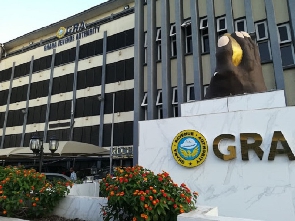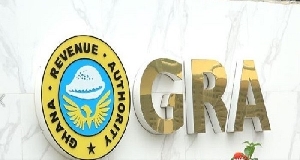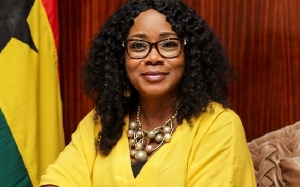Sexual harassment, or the sex-for-grade, menace of the sort that was captured on videotape by the British Broadcasting Corporation (BBC) last October is a perennial global problem, perhaps one that goes back to the very foundations of the Academy itself. Nevertheless, what makes the latest decision by the administrators of the country’s flagship academy, the University of Ghana, worthy of our approval and our commendation is the unmistakable signal that it sends to the professoriate and all personnel who wield considerable power and influence over our students, especially our female students, that, henceforth, the sort of cavalier attitude and response with which past administrators at the University of Ghana, and elsewhere around the country, attended the emotionally and psychologically traumatic question of sexual harassment is decidedly a relic of the past. There will no longer prevail a business-as-usual approach to the most deleterious menace that has ended the careers of an uncountable number of otherwise well-performing, successful and societally and professionally promising students.
Already, the Vice-Chancellor of the University of Ghana, Prof. Ebenezer Oduro Owusu, who also happens to have been classmates with yours truly at Okwawu-Nkwatia’s St. Peter’s Secondary School (PERSCO), has informed the general public that since his assumption of administrative powers at the globally renowned institution, several personnel who were brought up on various charges of professional misconduct that were found to have merit or credibility were promptly dismissed by the University after a fair hearing. What this means is that the landmark decision to, respectively, suspend Prof. Ransford Gyampo and Dr. Paul Butakor, both faculty members in the Political Science Department at the University of Ghana, for six months and four months, is not an isolated incident. Neither are these two lecturers being disciplinarily scapegoated (See “Prof. Gyampo, Butakor Get Suspension with No Pay over Sex-for-Grade Documentary” Ghanaweb.com 2/17/20; also, “Sex for Grade: UG’s Punishment Harsh but We Accept It – Gyampo, Butakor” Starrfm.com.gh / Ghanaweb.com 2/18/20).
But what is singularly significant to underscore here is the fact that this decision has ensured that the globally remarkable reputation of the University of Ghana, this writer’s own father’s alma mater, has been staunchly and credibly affirmed. It is also unsavorily tempting to second-guess the reasons or factors that may obviously have led to the disciplinary differentials in the punishment meted Prof. Gyampo and Dr. Butakor; but that may only be tantamount to an exercise in futility. Still, one thing is clear – and it is the fact that the garrulous arrogance and petulance of Prof. Gyampo, both in his abject denial of the irrefutable evidence presented in the BBC exposé and the perpetrator’s insufferably cavalier attempt to impugn the professional and moral credibility of the Number One global broadcaster, did not help the cause and the case of Prof. Gyampo, the more senior of these two academicians.
Dr. Butakor, on the other hand, wisely kept his cool, as it were, while the full details of the events slowly unfolded. His quite wise decision to remain silent may very well have redounded to the relative leniency of his punishment. Prof. Gyampo may serve himself and his cause better to learn something from the seemingly humble and remorseful approach of his junior colleague.
On the whole, the disciplinary response and/or reaction of the University of Ghana’s Professional Conduct Committee is indubitably laudable, if also because it contains a clearly defined sequence of remedies by which to credibly restore the culprits or perpetrators to their lost status of professional respect and dignity. The establishment of an annual mechanism by which the professorial conduct of Messrs. Gyampo and Butakor will be assessed for the next five years must serve as ample deterrent for those who may be equally guilty but were not captured by the BBC’s exposé. Finally, our daughters and granddaughters can rest assured that a far more conducive learning environment has been created for them in the nation’s flagship academy.
We also hope that this disciplinary measure seismically reverberates across all tertiary academies in the country, as well as all levels of the academic spectrum, from Kindergarten through our Secondary or High School system. Then and only then can we properly and credibly begin to talk about significantly improving the general quality of Ghana’s system of education, both public and private.
*Visit my blog at: kwameokoampaahoofe.wordpress.com Ghanaffairs
By Kwame Okoampa-Ahoofe, Jr., PhD
English Department, SUNY-Nassau
Garden City, New York
E-mail: okoampaahoofe@optimum.net
Opinions of Wednesday, 19 February 2020
Columnist: Kwame Okoampa-Ahoofe, Jr., Ph.D.















